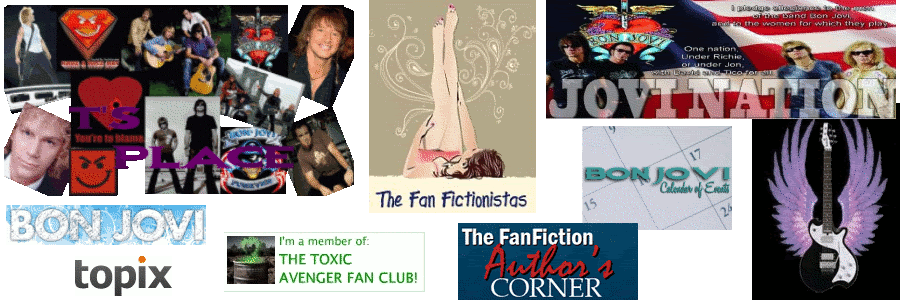About Bad Name...
From The Billboard Book of Number 1 Hits, 5th Edition, published 2003.
You Give Love A Bad Name
Writers: Jon Bon Jovi, Richie Sambora, Desmond Child
Producer: Bruce Fairbairn
November 29, 1986
Weeks at Number 1: 1
The Top Five - Week of November 29, 1986
1. You Give Love a Bad Name - Bon Jovi
2. Human - Human League
3. True Blue - Madonna
4. The Next Time I Fall - Peter Cetera and Amy Grant
5. Hip to Be Square - Huey Lewis and the News
John Bongiovi was born on March 2, 1962, (the number one song in America was "Duke of Earl" by Gene Chandler), in Perth Amboy, New Jersey. He grew up in Sayreville and was playing in garage bands by the time he was in junior high. At 14 he asked a lounge guitarist who moved into the neighborhood to give him lessons so he could meet "chicks".
In high school, he formed a cover band called the Atlantic City Expressway with his friend David Rashbaum. Bongiovi didn't go on to college but held down jobs in a junkyard, a fast food restaurant and a Kinney's Shoe Store, where he was fired for playing the radio too loud. His cousin, Tony Bongiovi, ran the Power Station recording studio in New York and had produced records for Aerosmith, The Ramones and the Talking Heads. Jon (he dropped the "h") went to Manhattan to work at the studio.
"I had a broom and a pot of coffee and I was a gofer," he told Keeps. "For 50 bucks a week for two years I learned about the music business. The people that I met through the Power Station helped me in the business. It was a good experience."
Jon was able to record in the studio in the off hours, and with some help from musicians like Roy Bittan of the E. Street Band, he soon had over 50 tracks. One of them was his own composition "Runaway". In 1983, radio station WAPP in New York picked up the song for their Homegrown LP, and it was played by some album-oriented rock stations around the country.
Bongiovi had a hit records but no band. He asked his friend Dave Rashbaum (now named David Bryan) to play keyboards. He also recruited bassist Alec John Such from a local band, Phantom's Opera, and a drummer Tico Torres from Franke and the Knockouts (I've Had The Time of My Life). Lead guitarist Richie Sambora, who played with Such in a New Jersey band called the Message, completed the group of five musicians.
Derek Shulman of PolyGram Records signed the band to the Mercury label. They all agreed to anglicize Jon's last name as the group name, so fans would recognize that "Runaway", included on Bon Jovi's first LP, was by the same person who recorded it on the Homegrown hit. "Runaway" peaked at number 39 on the Hot 100 in April, 1984. Their second LP, 7800 Fahrenheit, produced a couple of mid-chart singles, "Only Lonely" and "In and Out of Love".
For their third album, the group turned to producer Bruce Fairbairn (Loverboy, Honeymoon Suite). They also wanted to collaborate with an outside writer who could turn out material that would bring the band a wider audience - specifically, more females. Paul Stanley of the group Kiss recommended Desmond child, who had had a 1979 Hot 100 chart single, "Our Love Is Here to Stay" (by Desmond Child and Rouge).
"I got a lot of resistance," Child told Susan Orlean in Rolling Stone. "Jon didn't want to try those new rhythms. He thought it sounded too Michael Jackson. It took a tremendous leap of maturity for him to let that in." One of the songs co-written with Child was "You Give Love a Bad Name," the first single released from Slippery When Wet.
Sambora talked about writing the song in Music Connection: "Jon, Desmond Child and I were sitting there talking, and the title was the first thing that came up. Jon said something like, "How about "You Give Love a Bad Name"? and I said, "Ah-hah!" I think the riff came in next. We wrote the chorus first with the riff, put in the verses, and that was it. It took one day."
Fairbairn continues the story: "I remember Jon picking me up at the hotel. (He) said, "Man last night we nailed this song that I think is a smash." The title sounded great right off the bat. When the band learned it and we listened to it, we all had a real good feeling because of the changes of the chorus. It had that accessible (feel) to it. We worked it from there, building up the big vocal parts and coming up with the guitar parts that made the song special. When you finish the song and actually mix it, you say, 'Well, this is the best that we can do. God only knows if the kids are going to like it.'"

















0 comments:
Post a Comment